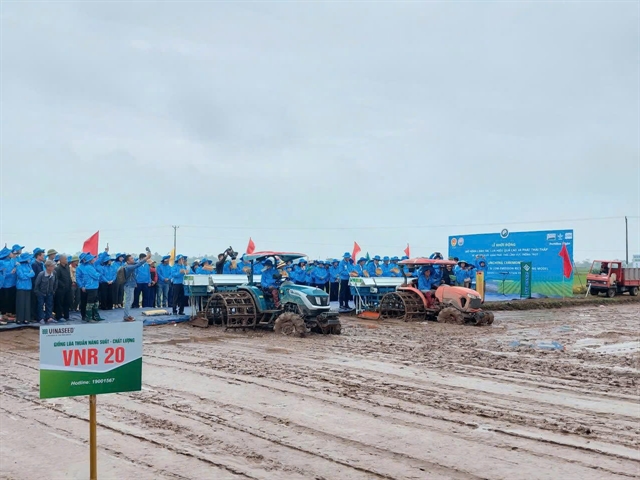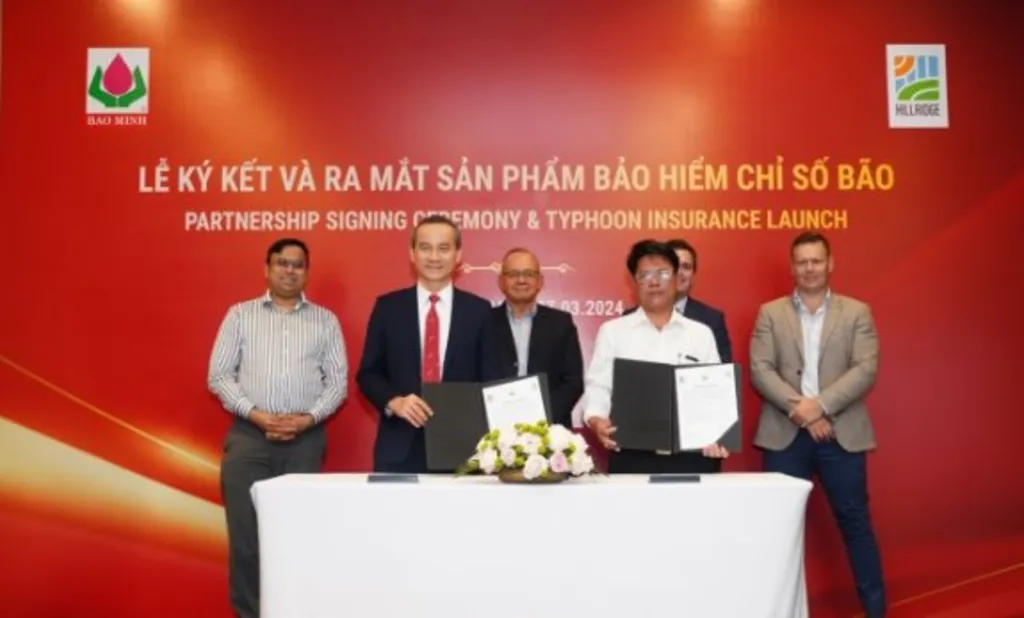 Environment
Environment

 |
| Representatives of Bảo Minh Insurance and Hiệp Thuận Agricultural Cooperative sign an insurance deal in HCM City on March 7. — Photo courtesy of the organiser |
HCM CITY — Bảo Minh Insurance and Australian insurtech firm Hillridge have entered into a partnership to offer parametric Typhoon Index Insurance, a new product in Việt Nam that will protect farmers from the country’s devastating typhoons.
The product is based on a simple, online purchasing process.
Payouts are calculated by a satellite-based system that measures the severity of the typhoon and the distance of the farm from that storm.
Policies are available from VNĐ10 million (US$406) to 75 per cent of the entire insured value of a farmer’s assets.
“Unlike traditional indemnity-based insurance, where pay-outs are determined through a damage assessment that can see cumbersome processing times and delayed claims, parametric insurance pays out – typically within 10 days – based on a transparent, predetermined calculation,” Hillridge CEO Dale Schilling said.
Nguyễn Ngọc Anh, Bảo Minh Insurance’s executive vice president, said this means farmers would be able to quickly replenish their stocks and replant their crops rather than wait for a prolonged assessment and claims period.
“We see tremendous opportunities for this product for farmers in sectors including aquaculture, forestry and crops like fruits, sugarcane and rubber, notably in central provinces such as Thanh Hoá, Nghệ An, Quảng Nam, Bình Định, and Bình Thuận, which face devastating storms every year.”
At a ceremony held in HCM City on March 7 Hiệp Thuận Agricultural Cooperative of Quảng Nam Province signed a deal with Bảo Minh to insure farmers with over 154 hectares of acacia plantations against adverse weather incidents and the impacts of longer-term climate change, becoming the product’s first customer.
USAID is supporting the first year of the insurance’s implementation along with other technical assistance to Hiệp Thuận.
Việt Nam, which is typically hit by four to six major tropical storms each year, has a particularly vulnerable agricultural sector that is frequently devastated when they strike.
But less than 5 per cent of farmers are insured against adverse weather events. — VNS




